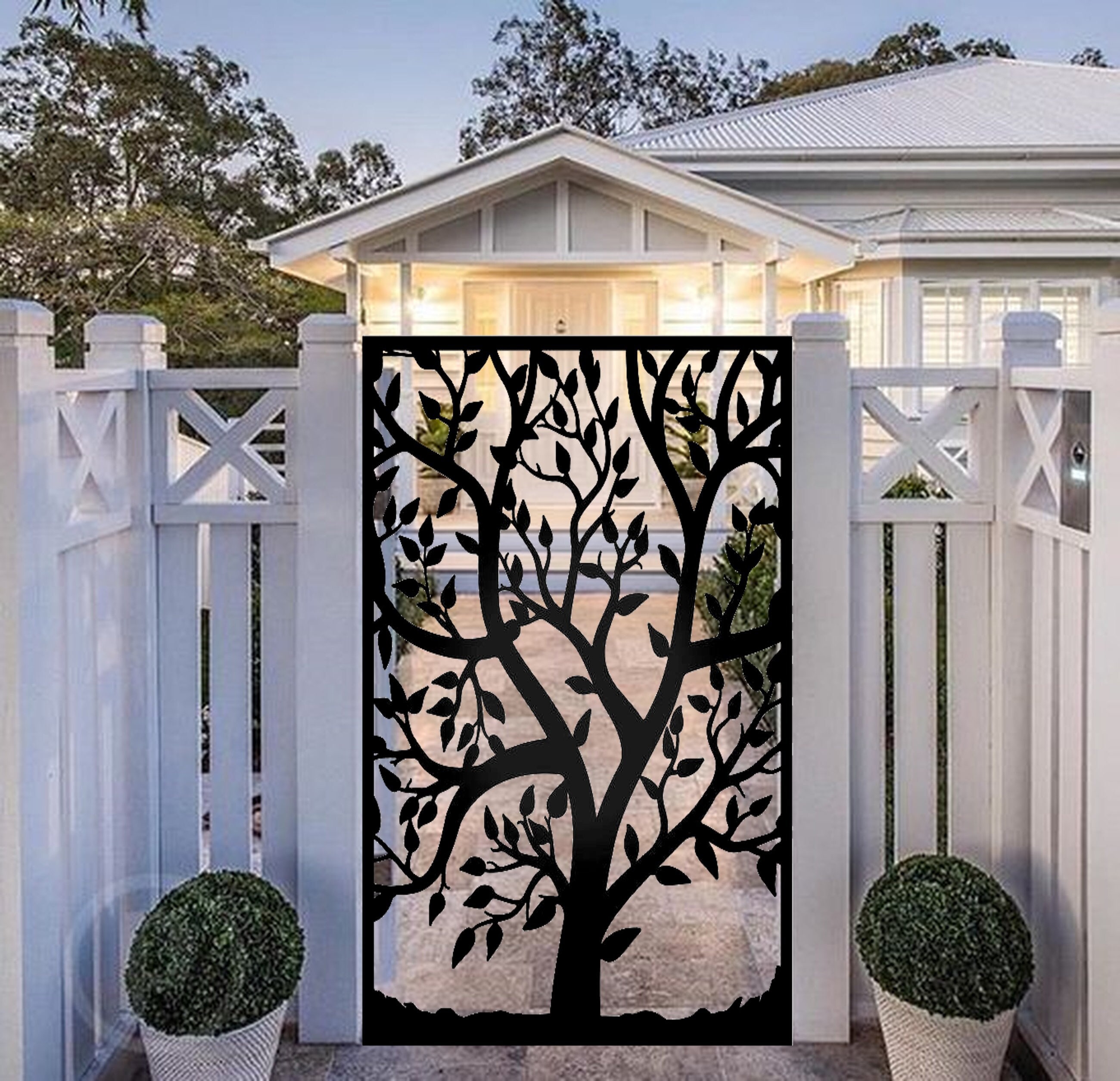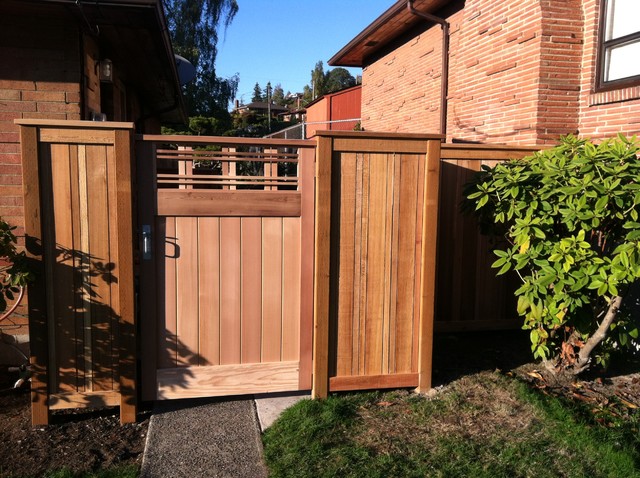Decorative gates and fences are more than just boundaries; they are the first impressions of your property. As a homeowner, I know how crucial it is to create a welcoming atmosphere for guests while also ensuring privacy and security. In this comprehensive guide, I will explore the myriad benefits, styles, and installation tips for decorative gates and fences, drawing from my experiences and insights.
What Are Decorative Gates and Fences?
Decorative gates and fences combine functionality with artistry. They serve a practical purpose—keeping pets in, children safe, and unwanted visitors out—while also enhancing the overall aesthetic of your property.
Why Choose Decorative Gates and Fences?
Choosing decorative gates and fences adds value to your property in several ways:
- **Curb Appeal**: A stylish gate or fence can dramatically improve the look of your home.
- **Privacy**: They provide a sense of seclusion, protecting your family’s privacy.
- **Security**: Properly installed gates and fences deter trespassers.
- **Durability**: Many decorative options are made from long-lasting materials.

Types of Decorative Gates
Understanding the different types of decorative gates can help you make an informed decision. Here are some popular styles:

1. Wrought Iron Gates
Wrought iron gates are renowned for their strength and ornate designs, often featuring intricate patterns that enhance any property.
2. Wooden Gates
Wooden gates provide a natural, warm feel and are often customizable in terms of design and finish.

3. Vinyl Gates
Vinyl gates are low-maintenance and available in various styles and colors, making them an attractive option for homeowners.
4. Chain Link with Decorative Slats
Chain link fences with decorative slats can provide security while offering a more stylish look than standard chain link.

Comparison Table of Gate Types
| Type | Material | Maintenance Level | Cost | Durability |
|---|---|---|---|---|
| Wrought Iron | Iron | Medium | High | Very Durable |
| Wooden | Wood | High | Medium | Moderate |
| Vinyl | Polymer | Low | Medium | High |
| Chain Link | Steel | Low | Low | Moderate |

Types of Decorative Fences
Like gates, decorative fences come in various styles. Here are some popular options:

1. Picket Fences
Picket fences are classically charming, often associated with suburban homes. They typically stand at around 3 to 4 feet tall and are great for defining property lines.
2. Privacy Fences
These fences offer full seclusion and come in various materials, including wood, vinyl, and composite materials.

3. Ranch Fences
Ranch-style fencing is typically made from wood or vinyl and is used to enclose larger properties, particularly in rural areas.
4. Lattice Fences
Lattice fences add a decorative element, allowing for climbing plants to flourish while still providing a degree of privacy.
Comparison Table of Fence Types
| Type | Material | Height | Cost | Style |
|---|---|---|---|---|
| Picket | Wood | 3-4 ft | Medium | Classic/Charming |
| Privacy | Wood/Vinyl | 5-6 ft | Medium to High | Modern/Functional |
| Ranch | Wood/Vinyl | 4-5 ft | Low to Medium | Rustic |
| Lattice | Wood/Vinyl | 3-6 ft | Medium | Decorative |
Choosing the Right Material for Your Gates and Fences
Choosing the right material is crucial in the overall effectiveness and appearance of your decorative gates and fences. Here’s a breakdown of some common materials:
Wood
Wood is a popular choice for both gates and fences due to its natural beauty. However, it requires regular maintenance to prevent rot and weather damage.
Pros of Wood
- Beautiful and versatile.
- Customizable in design.
Cons of Wood
- Requires regular maintenance.
- Can be susceptible to pests.
Vinyl
Vinyl is a low-maintenance option that is becoming increasingly popular. It does not rot or warp and can be easily cleaned.
Pros of Vinyl
- Low maintenance.
- Available in various colors and styles.
Cons of Vinyl
- Higher initial cost than wood.
- Limited aesthetic appeal compared to wood.
Wrought Iron
Wrought iron offers a classic look and incredible durability but often requires protective coatings to prevent rust.
Pros of Wrought Iron
- Very durable and long-lasting.
- Elegant and decorative.
Cons of Wrought Iron
- Higher cost.
- Requires maintenance to avoid rusting.
Installation Tips for Decorative Gates and Fences
Proper installation is essential for functionality and longevity. Here are some tips based on my personal experiences:
1. Check Local Regulations
Before installing your gate or fence, check local zoning laws and regulations. Some areas have restrictions on height, design, or materials.
2. Plan Your Layout
Map out where you want to install your fence or gate. Consider factors like property lines, utilities, and access points.
3. Choose Quality Hardware
Invest in high-quality hinges, locks, and latches. These components play a critical role in the performance and security of your gate.
4. Consider Professional Installation
If you lack the time or expertise, consider hiring a professional installer. It can save you time and ensure a more polished result.
Maintenance for Decorative Gates and Fences
Maintenance is key to preserving the beauty and functionality of your gates and fences. Here are some tips:
1. Regular Inspections
Inspect your gates and fences regularly for signs of wear, rust, or damage. Early detection can save you costly repairs.
2. Cleaning
Keep your gates and fences clean by removing dirt and debris. This is especially important for wooden surfaces to prevent decay.
3. Weatherproofing
Apply protective coatings to wood and wrought iron to prevent damage from the elements. Consider repainting every few years if necessary.
4. Repair Damages Promptly
Repair any damages as soon as you notice them. Whether it’s a cracked wooden post or a rusty latch, addressing these issues promptly can prolong the lifespan of your gates and fences.
FAQs About Decorative Gates and Fences
1. What is the average cost of decorative gates and fences?
The cost varies widely based on materials, size, and design, but homeowners can expect to spend anywhere from $1,500 to $5,000 for an average-sized yard.
2. How long do decorative gates and fences last?
With proper maintenance, wooden gates typically last 15-20 years, while vinyl can last over 30 years, and wrought iron may last a lifetime.
3. Can I install a decorative gate or fence myself?
Yes, if you have DIY experience and the right tools, you can install a gate or fence yourself. However, for complex designs or large installations, hiring a professional may be wise.
4. How do I choose the right style for my home?
Consider the architectural style of your home, your landscape, and your personal taste when selecting a gate or fence style.
5. Do decorative gates and fences provide security?
While they can act as a deterrent, the level of security largely depends on the materials used and how well the units are installed.
Conclusion
Decorative gates and fences offer a wonderful way to enhance your property while providing security and privacy. With careful selection of materials and styles, as well as proper maintenance, these features can serve you well for years to come. I hope this guide helps you make informed decisions that align with your home’s aesthetic and functional needs!